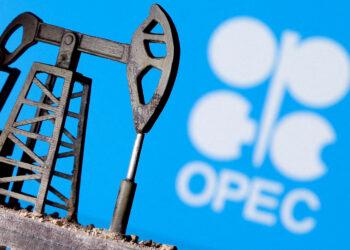The Organization of Petroleum Exporting Countries (OPEC) says that its member countries are investing in 4 technologies to reduce emissions.
This is according to a November 27 statement titled – “Whose moment of truth?”
According to the statement, OPEC called into question the declaration by the International Energy Agency (IEA) that the oil and gas industry faces a moment of truth – choosing between the shift to clean energy or fueling the climate crisis.
OPEC stated further that its member countries are actively involved in emissions reduction strategies, citing four technologies that these member countries are using to reduce emissions. The technologies include:
- Carbon capture utilization and storage (CCUS)
- Direct air capture
- Carbon dioxide removal
- Clean hydrogen
In its November 2023 “Oil and Gas Industry in Net Zero Transitions” report, the IEA said that the oil and gas industry needs to stop fueling the climate crisis.
A part of OPEC’s statement read:
- “As we have recently seen from the IEA, this presents an extremely narrow framing of the challenges before us, and perhaps expediently plays down such issues as energy security, energy access, and energy affordability. It also unjustly vilifies the industry as being behind the climate crisis.
- “OPEC Secretary General, Haitham Al Ghais said: “It is ironic that the IEA, an agency that has repeatedly shifted its narratives and forecasts regularly in recent years, now addresses the oil and gas industry and says that this is a ‘moment of truth’.
- “How the IEA has unfortunately used its social media platforms in recent days to criticize and instruct the oil and gas industry is undiplomatic, to say the least. OPEC itself is not an organization that would prescribe to others what they should do.”
OPEC insists on adoption of the “bottoms up” approach
OPEC also stated that it believes that the proposed IEA Framework to assess the alignment of company targets with the net zero emissions (NZE) Scenario is a tool intended to curtail the sovereign actions and choices of oil and gas-producing developing countries, through pressurizing their National Oil Companies.
A part of the statement read:
- “The framework also contradicts the Paris Agreement’s ‘bottom-up’ approach, where each country decides the means of contribution to global greenhouse gas emissions reduction, based on national capabilities and circumstances, and will likely lead to reduced investment and undermine the security of supplies, which is one of the IEA’s key mandates.”
Finger-pointing is not a constructive approach
OPEC stated that the IEA report dismissed technologies like CCUS as ineffective, contrasting with other assessments supporting them. Meanwhile, Al Ghais emphasized the complexity of energy challenges, advocating for balanced investments in various energies and technologies.
He stressed the need to prioritize emission reduction without favouring specific energy sources. He highlighted that the oil and gas industry is investing in renewables and emission-cutting technologies, with some OPEC countries leading in this area.
Al Ghais also pointed out the importance of collaborative efforts over blame, emphasizing the coexistence of emission reduction and energy accessibility.
He urged inclusive discussions, respecting each country’s transition pathways, aiming for growth, mobility, access, and reduced emissions.























Am interested in this job